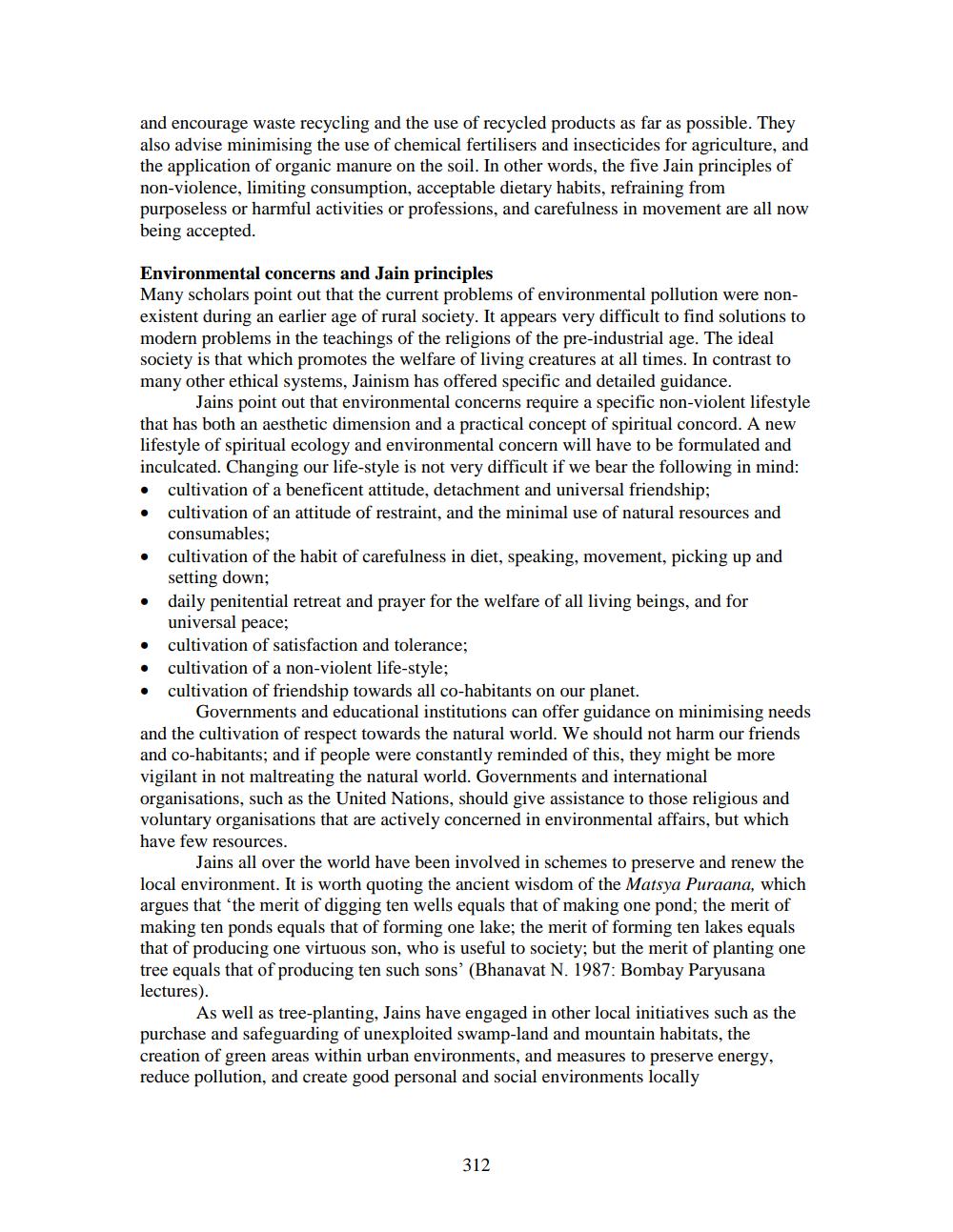________________
and encourage waste recycling and the use of recycled products as far as possible. They also advise minimising the use of chemical fertilisers and insecticides for agriculture, and the application of organic manure on the soil. In other words, the five Jain principles of non-violence, limiting consumption, acceptable dietary habits, refraining from purposeless or harmful activities or professions, and carefulness in movement are all now being accepted.
Environmental concerns and Jain principles Many scholars point out that the current problems of environmental pollution were nonexistent during an earlier age of rural society. It appears very difficult to find solutions to modern problems in the teachings of the religions of the pre-industrial age. The ideal society is that which promotes the welfare of living creatures at all times. In contrast to many other ethical systems, Jainism has offered specific and detailed guidance.
Jains point out that environmental concerns require a specific non-violent lifestyle that has both an aesthetic dimension and a practical concept of spiritual concord. A new lifestyle of spiritual ecology and environmental concern will have to be formulated and inculcated. Changing our life-style is not very difficult if we bear the following in mind:
cultivation of a beneficent attitude, detachment and universal friendship; cultivation of an attitude of restraint, and the minimal use of natural resources and consumables; cultivation of the habit of carefulness in diet, speaking, movement, picking up and setting down: daily penitential retreat and prayer for the welfare of all living beings, and for universal peace; cultivation of satisfaction and tolerance; cultivation of a non-violent life-style; cultivation of friendship towards all co-habitants on our planet.
Governments and educational institutions can offer guidance on minimising needs and the cultivation of respect towards the natural world. We should not harm our friends and co-habitants; and if people were constantly reminded of this, they might be more vigilant in not maltreating the natural world. Governments and international organisations, such as the United Nations, should give assistance to those religious and voluntary organisations that are actively concerned in environmental affairs, but which have few resources.
Jains all over the world have been involved in schemes to preserve and renew the local environment. It is worth quoting the ancient wisdom of the Matsya Puraana, which argues that the merit of digging ten wells equals that of making one pond; the merit of making ten ponds equals that of forming one lake; the merit of forming ten lakes equals that of producing one virtuous son, who is useful to society; but the merit of planting one tree equals that of producing ten such sons' (Bhanavat N. 1987: Bombay Paryusana lectures).
As well as tree-planting, Jains have engaged in other local initiatives such as the purchase and safeguarding of unexploited swamp-land and mountain habitats, the creation of green areas within urban environments, and measures to preserve energy, reduce pollution, and create good personal and social environments locally
312




